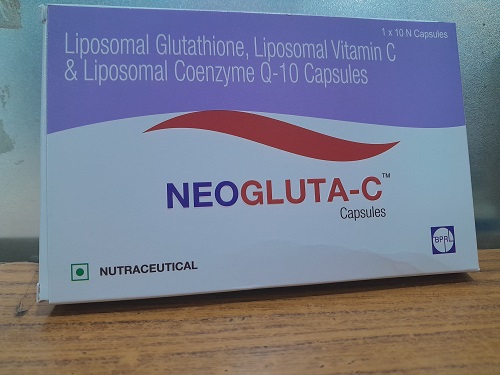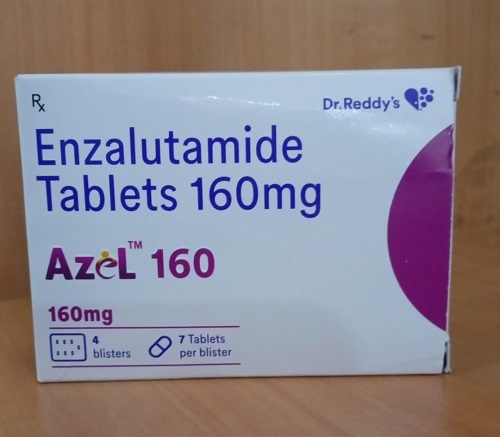Product Introduction:
Nintenib 100mg contains Nintedanib, a tyrosine kinase inhibitor (TKI) that targets various growth factor receptors responsible for abnormal cell proliferation and fibrotic processes. It is used both in oncology and respiratory medicine to slow the progression of diseases like IPF and to enhance survival in advanced lung cancer.
Uses:
Nintenib 100mg is prescribed for:
-
Idiopathic Pulmonary Fibrosis (IPF)
-
Systemic sclerosis-associated interstitial lung disease (SSc-ILD)
-
Chronic fibrosing interstitial lung diseases with progressive phenotype
-
Non-small cell lung cancer (NSCLC) – in combination with docetaxel for advanced adenocarcinoma
-
Other progressive interstitial lung diseases (as determined by physician)
Storage Instructions:
-
Store below 25°C, in a cool and dry place
-
Protect from light and moisture
-
Keep in original packaging
-
Keep out of reach of children
How It Works (Mechanism of Action):
Nintedanib is a multi-targeted tyrosine kinase inhibitor that blocks receptors such as VEGFR, FGFR, and PDGFR. These receptors play crucial roles in angiogenesis, fibrosis, and tumor growth. By inhibiting these pathways, Nintenib reduces the progression of lung fibrosis and slows tumor development in cancer.
Side Effects:
Common side effects include:
-
Diarrhea
-
Nausea and vomiting
-
Abdominal pain
-
Loss of appetite
-
Weight loss
-
Elevated liver enzymes
-
Headache
Serious side effects may include:
-
Liver toxicity (monitor LFTs regularly)
-
Gastrointestinal bleeding or perforation
-
Arterial thromboembolic events
-
Hypertension
-
Interstitial lung disease exacerbation
Dosage (Typical Recommended Dose):
-
For IPF and fibrosing ILDs: 100 mg twice daily, approximately 12 hours apart
-
For NSCLC (with docetaxel): 200 mg twice daily in advanced settings
-
Dose may need to be reduced to 100 mg twice daily in case of side effects
-
Always follow physician-prescribed dosage and monitor for tolerance
Method of Administration:
-
Take orally with food to minimize GI irritation
-
Swallow whole with water – do not crush or chew
-
Take doses at the same time each day
-
Maintain 12-hour interval between doses if twice daily
Precautions:
-
Monitor liver function before and during treatment
-
Caution in patients with bleeding disorders or on anticoagulants
-
Avoid use in pregnancy – may harm the fetus (Category D)
-
Use effective contraception during treatment and for at least 3 months after
-
Patients with a history of peptic ulcer, diverticulitis, or GI perforation should be closely monitored
-
Avoid alcohol to reduce liver strain
Drug Interactions:
May interact with:
-
P-glycoprotein inhibitors (e.g., ketoconazole, erythromycin) – may increase Nintedanib levels
-
P-glycoprotein inducers (e.g., rifampicin, carbamazepine) – may decrease efficacy
-
Anticoagulants – increased risk of bleeding
-
Inform your doctor about all ongoing medications including herbal supplements
Allergies:
-
Contraindicated in individuals with known hypersensitivity to Nintedanib or its components
-
Symptoms of allergic reaction include: rash, itching, swelling, breathing difficulties – seek emergency help if any of these occur
Overdose Information:
-
Overdose may lead to severe diarrhea, nausea, vomiting, or liver enzyme elevation
-
In case of overdose, provide supportive care
-
Seek immediate medical attention or contact a poison control center
Missed Dose Instructions:
-
If a dose is missed, take it as soon as remembered, unless it's close to the next dose
-
Do not double the dose to make up for a missed one
-
Resume regular dosing schedule thereafter
Additional Notes:
-
Liver function tests should be conducted before starting therapy, then monthly for 3 months, and periodically thereafter
-
Hydration and anti-diarrheal management (e.g., loperamide) may be needed during therapy
-
This medicine is not a cure for IPF or cancer, but slows progression and may improve quality of life
-
Patients may require dietary support due to appetite suppression and weight loss
-
Always consult with a pulmonologist or oncologist before starting or adjusting therapy




